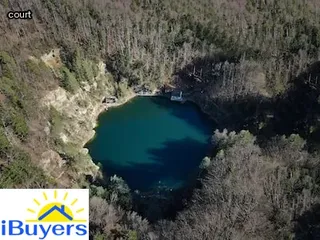The probate process is an important legal part of settling an estate and selling a house in Washington. It is a court-supervised procedure that must be completed before the assets of the deceased can be distributed to their heirs.
The length of time that it takes to complete the process depends on many factors, including the complexity of the will, how long it takes to collect all relevant documents, and any disagreements between beneficiaries. When beginning this process, it is important to understand why probate is necessary and what steps must be taken for its completion.
Probate ensures that all debts are paid in full and all property rights are properly identified and transferred to their rightful owners. Additionally, probate allows for any unresolved disputes or claims by creditors against the estate to be settled before the assets can be distributed.
As such, it is important to consult with an experienced attorney who can guide you through each step of this complicated process.

In Washington, probate is necessary when a person dies and leaves behind assets that need to be distributed according to their will. Probate is the process of validating a will and administering the estate of the deceased.
Estate administration includes identifying and gathering assets, paying debts and taxes, and distributing remaining assets to heirs or beneficiaries. During probate, an executor is appointed by the court to manage the estate.
Not all estates are subject to probate in Washington; however, if there are more than $100,000 in assets or real estate owned solely by one individual at the time of their death then it is likely they will need to go through probate. This process can be lengthy depending on how complicated the estate is and how quickly creditors, heirs, or beneficiaries respond to requests for information from the executor.
In the state of Washington, there are several strategies that can be employed to avoid probate and speed up the process of selling a home and settling an estate. A revocable living trust can be used to own property while you are alive, and it will pass to the beneficiaries upon your death without probate court involvement.
Joint tenancy with right of survivorship allows two or more people to own a property together, with ownership transferring automatically upon the death of one tenant. Additionally, community property with right of survivorship is another option in which married couples can hold title to their home as joint tenants; this type of ownership also passes directly to the surviving spouse without going through probate.
Finally, Washington’s transfer-on-death deed allows people to designate who should receive their real estate after they die by filing a simple form with their county auditor’s office. These strategies for avoiding probate in Washington all have the potential to save time, money and stress associated with the traditional probate process.

In Washington, not all estates are subject to probate proceedings. Certain criteria must be met for a deceased person's estate to undergo the probate process.
Generally speaking, any estate that includes real property or personal property with a value of more than $100,000 will require probate court proceedings. Additionally, if the decedent was an owner of a business or had other assets such as stocks and bonds at the time of their death, these assets may also need to go through the probate process before they can be distributed.
The exact rules and regulations for determining which estates are subject to probate vary from state to state so it is important to consult with an experienced attorney in order to determine whether or not your particular situation requires you to go through the probate process.
In Washington, initiating the probate process requires filing documents with the court. Depending on the complexity of the estate, there are different deadlines that must be met in order to properly start proceedings.
One of the main documents involved is a petition for the appointment of a personal representative, which must be filed within four months of the decedent's death. This document should include information about the proposed personal representative and an inventory of all estate assets.
In addition, creditors must be notified within three months from when letters are issued to them. If any matters arise during this time period that require court action, then an additional petition may need to be filed along with other forms.
After these deadlines have been met, then the probate process can move forward and selling a house and settling an estate can begin.

Navigating the estate settlement process in Washington can be a complicated endeavor. When family members are dealing with the probate process, it is important to understand the intricacies of unlocking the probate process and how long it takes to sell a house and settle an estate.
In Washington, there are certain processes that must be followed and timelines that must be adhered to in order to ensure that all legal requirements are met. After a death certificate has been issued and the executor of an estate is appointed, they will then need to inventory all property belonging to the deceased.
Property must then be appraised in order for it to be distributed according to state law. There may also be debts or taxes due which will need to be paid before property can be distributed.
All this must occur while complying with state laws regarding probate proceedings, which often require court supervision and approval of any transactions regarding property or funds held by an estate. Selling a house during this time frame can take anywhere from several months up to a year depending on market conditions at the time of sale.
Settling an estate may take even longer as there will likely be additional paperwork associated with any contracts or legal documents involved in transferring ownership or assets from one party to another. Although navigating this process can seem daunting, understanding all aspects of unlocking the probate process in Washington is essential for successful estate administration.
The probate process in Washington is managed through the court system. It is a legal procedure where the estate of a deceased person is settled, meaning that their debts and taxes are paid, assets are distributed to heirs, and property is sold.
In order to begin this process, an executor must be appointed by the court. This individual can be someone named in the deceased’s will, or if there is no will, then it may be anyone over 18 years of age who meets certain criteria set by the court.
The executor is responsible for filing all necessary paperwork with the court, including an inventory of property owned by the deceased as well as accounting for any outstanding debts owed by them. Once approved by the court, it typically takes between six months to a year before all assets are distributed and any leftover proceeds from selling property are returned to heirs.
During this time, it is important for all parties involved to understand their rights and obligations under Washington state law in order to ensure that everything runs smoothly and efficiently.

In Washington, relevant legislation governing the probate process is outlined in the Revised Code of Washington (RCW). The RCW outlines the steps that must be taken to administer a decedent's estate and settle debts.
Generally speaking, when a person dies, their assets become part of their estate which must be administered according to state law. This includes selling any real property owned by the decedent.
To effectuate this sale, certain legal requirements must be met including providing notice to creditors and obtaining court approval for the sale depending on the size of the estate. How long it takes to sell a house and settle an estate will depend on the size and complexity of the estate as well as whether all required documents are filed correctly with the court.
In addition, there may be additional delays if any disputes arise between creditors or heirs regarding distribution of assets or payment of debts. While these matters can often be resolved quickly through negotiation or mediation, if litigation is required, it could take months or even years to resolve issues relating to probate matters in Washington.
When a person dies, their estate must go through the probate process in Washington if they owned real estate or had assets totaling more than $100,000. The first step is to assess whether probate is needed and it’s important to understand when to file one.
It’s generally recommended that the family of the deceased consult an attorney who specializes in probate law as soon as possible after death. This will help them determine if a probate is required and what type of probate is most appropriate for the situation.
If necessary, they can then complete all of the forms and submit them to the court. Once this has been done, it typically takes several months for the court to approve and settle the estate, which can be a lengthy process that may take up to two years or more depending on how complicated the situation is.
At this stage, all debts must be paid off and then any remaining assets can be distributed according to state law.

When a person dies in the state of Washington, the probate process begins. In order to settle an estate and sell a house in Washington, there are several initial steps that need to be taken.
Before the estate can be distributed, all debts and taxes must be paid off. This includes any unpaid mortgages or other liens on the property.
Next, the executor will need to file a petition with the court to begin probate proceedings. This petition must include a list of all assets and liabilities of the estate, as well as any potential creditors who may have claims against it.
Once this is done, the court will appoint an administrator and issue Letters Testamentary or Letters of Administration which grant authority to manage the estate. Once all documents are filed with the court, a Notice of Probate will be published so that creditors can make their claims against the estate.
If all goes according to plan, it usually takes about three months for an executor to settle an estate from start to finish in Washington.
The probate process in Washington typically takes anywhere from six to twelve months, depending on the complexity of the estate. When a person passes away, their assets must go through a legal process known as probate before they can be distributed among the beneficiaries.
The process begins with filing documents with the court, including the will and an inventory of all estate assets. After that, creditors and taxes need to be paid before any distribution of assets can occur.
The timeline for this depends on how quickly creditors respond, if there are any disputes over debts or assets, and if an executor is appointed by the court. In some cases, selling real estate is part of the probate process which can add time as well due to market conditions and potential buyers.
While it may take longer than expected for some estates, typically speaking most are settled within six to twelve months in Washington.

When it comes to remuneration guidelines for Executors in Washington, the laws that govern this process are relatively straightforward. Executors can be compensated by the estate for their work and expenses related to carrying out their duties, but they cannot receive any more than five percent of the total value of the estate without court approval.
The amount an Executor is allowed to receive will depend on a variety of factors, including the size of the estate, how long it takes to settle the estate, and whether or not there are any debts to pay off. Executors must file a "statement of executor's fees" with the probate court in order to receive compensation for their services and must also provide proof that all debts were paid before being allowed to collect any money from the estate.
Additionally, Executors can only receive reasonable reimbursement for expenses incurred while carrying out their duties such as travel costs or attorney fees.
When a house is sold as part of an estate in Washington State, the process of finalizing the estate can be complex and time consuming. Estimating how long it takes to complete this process can be difficult due to many factors that may prolong the timeline.
Generally, the probate court will issue an order allowing for the sale of real estate once all debts have been paid and taxes have been filed. The process of obtaining said order can often take several months depending on the complexity of the estate and whether or not any disputes arise during probate proceedings.
Additional time should be taken into consideration for court hearings and other administrative tasks associated with settling an estate such as transfer of title. Furthermore, closing a real estate transaction itself typically requires some time for processing paperwork, inspections, appraisals, negotiations, and more.
All in all, it would be wise to plan for at least 6-9 months from start to finish when selling a home as part of an estate in Washington State.

The probate process in Washington requires all assets of a deceased person to be identified, appraised and distributed according to the law. Understanding which assets need to pass through probate is essential for unlocking the process and settling an estate.
Examples of assets that must go through probate include real property such as a house, land or any other type of real estate; cash in bank accounts; investments like stocks, bonds, mutual funds, and annuities; life insurance policies with designated beneficiaries; and tangible personal property such as cars, boats, furniture, jewelry and artwork. Additionally, some digital assets may also require letters testamentary or letters of administration before they can be transferred properly.
With knowledge of what needs to pass through probate in Washington and the average time it takes to settle an estate - typically six months to one year - executors can better understand how long it will take to sell a house after someone passes away.
The probate process in Washington can be complicated for those unfamiliar with the state's estate laws. However, understanding the distinction between formal and informal administration procedures is key to unlocking the probate process.
Formal administration is generally considered a more structured approach that involves court oversight and approval of an appointed personal representative. This procedure typically takes longer to settle an estate than informal administration, as it requires additional paperwork and court appearances.
In contrast, informal administration offers a quicker resolution as it does not require court approval or intervention from a judge. Although this method usually takes less time to sell a house and settle an estate, it may not be available in all cases, so it’s important to understand which probate process is most suitable for your particular situation.

The probate process in Washington can be a complex and lengthy one. It is important to understand the different types of creditors that can be involved in an estate and how they will affect the distribution of assets during the probate process.
Creditors are generally divided into two categories: general creditors, which include any debts or monetary obligations owed by the deceased, such as credit card debt or unpaid medical bills; and specific creditors, which pertain to specific assets, such as mortgages or liens on property. Specific creditors have priority over general creditors when it comes to distributing assets from an estate, so it is essential to understand how each type of creditor may affect the distribution of assets during the process.
Knowing this information can help make sure that all necessary parties are contacted and that all debts are paid before any assets are distributed. Ultimately, understanding these types of creditors and their effects on asset distribution could help speed up the probate process in Washington.
When settling an estate in Washington, it is important to consider the tax implications of the distribution after death. Estate taxes are based on how much property the deceased person owned and the value of their estate at the time of death.
This can be complicated when there are multiple beneficiaries or heirs involved in the probate process. Any profits made from selling a house or other real estate property may also be subject to capital gains tax, which could reduce the amount of money that each heir receives.
In addition, any debts left behind by the deceased must be taken into account when determining what kind of taxes may be applicable to the estate. It is always best to consult with a qualified attorney or tax professional before distributing assets from an estate in order to ensure that all necessary steps have been taken and all appropriate taxes paid.

The probate process in Washington can be a long and complicated one, with various statutory time limits dictating how long it takes to settle an estate. For example, if there is no will present at the time of death, a court must appoint someone to serve as administrator of the estate and an inventory must be taken of all assets.
This typically takes months to complete before any assets can be distributed or sold. When settling an estate that includes a house, the trustee or executor must provide creditors with notice of the sale and wait for any objections to be filed.
After this period is completed and any objections are addressed, the house can then be sold and proceeds distributed according to state law or the instructions in a will. The entire process can take anywhere from six months to several years depending on the complexity of the estate and if there are any legal disputes that need resolution.
In Washington state, the probate process can be a lengthy and complicated process. It is important to understand how long it takes to settle an estate and sell a house in order to plan accordingly.
Generally, the probate process in Washington takes anywhere from six months to two years, depending on the complexity of the estate. The primary factors that affect the length of time are paperwork, court proceedings, asset values, and creditors’ claims.
In addition, if there are disagreements among beneficiaries or heirs over the assets or debts in the estate, this can add considerable delay as well. To ensure that all legalities are met during this period of time, it is recommended that you consult with an experienced probate attorney who can guide you through each step of unlocking the probate process and settling an estate in Washington state.

Most estates in Washington take anywhere from nine months to two years to settle. However, the length of time can vary depending on several factors, such as the size of the estate and whether or not any disputes arise between beneficiaries.
Additionally, a probate court must approve all sales of real estate, which can add additional time to the process. Generally speaking, it takes approximately three months for probate proceedings to begin and end once an executor is appointed, but this timeline may be extended if creditors submit claims against the estate or if there are other complications.
It is important for executors and beneficiaries alike to understand that patience is key when dealing with the probate process in Washington.
Closing an estate in Washington requires the executor of the will to go through a probate process that can take several months or even years to finalize. The primary step in closing an estate is to file a petition with the court in the county where the deceased resided.
This petition must include information about the assets and liabilities of the deceased, as well as evidence of any debts owed. Once this petition is approved, the executor can begin to settle any outstanding debts, pay taxes, and distribute assets according to state law.
If a house is part of the estate, it will need to be appraised and sold before assets can be distributed. Throughout this process, there are strict timelines for filing documents and paying creditors that must be adhered to in order to close the estate efficiently.
Once all debts have been settled and assets distributed, the court will issue a final order discharging the executor from his/her duties. At that point, all parties involved will have received their share of assets and liabilities from the estate, officially closing it out.
Yes, it is possible to sell a house in probate Washington State. The probate process can be complex and lengthy, depending on the size of the estate and its complexity.
In order to begin the process of unlocking the probate process in Washington, it is important to understand how long it takes to sell a house and settle an estate. On average, selling a house in probate in Washington can take anywhere from three months to nine months; however, each case is unique and may take longer or shorter depending on the specifics of the situation.
During this time period, court-appointed executors will work with heirs and other parties involved to assess the assets and liabilities of the deceased's estate. This includes appraising all real estate holdings such as houses, land, and other properties.
Once these have been appraised, executors must then obtain court approval for any sales that are made associated with the estate. The length of this procedure will depend on how many parties are involved in negotiating terms or if there are any disputes regarding ownership or value of assets within the estate.
Once all parties have agreed upon a sale price and court approval has been granted, buyers can move forward with closing costs and finalizing the sale of property owned by a deceased individual's estate.